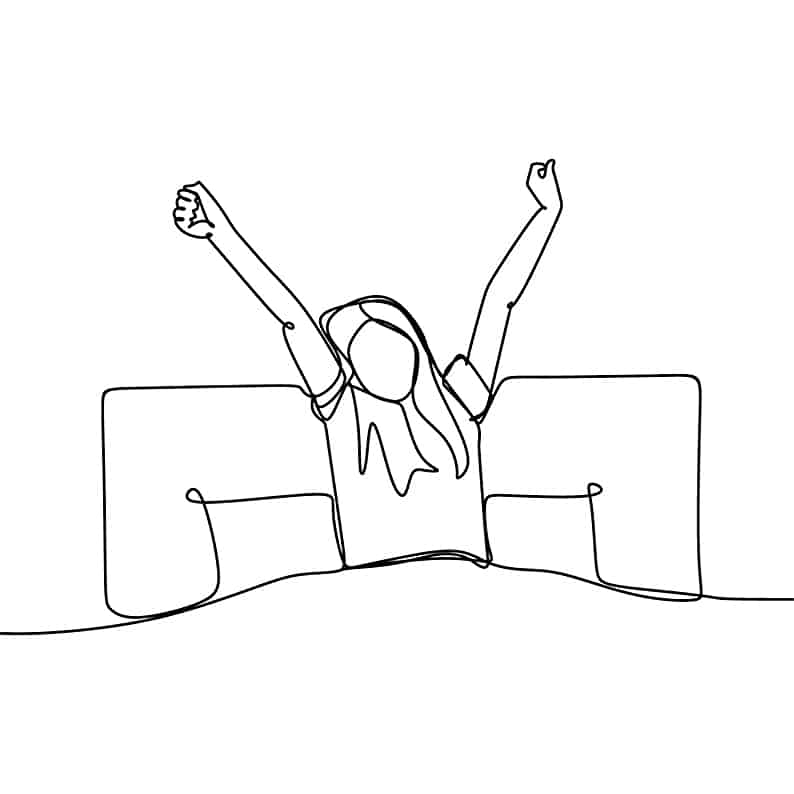
As I get older, the topic of how we sleep, how little we sleep, and how tired we are seems to be coming up more and more in casual conversation with friends. Waking shortly after going to sleep and not being able to get back to sleep again; or simply not being able to get to sleep in the first place, waking with hot flashes – all these are very common complaints. Personally, I’ve always slept pretty well, but recently I’m waking up a lot more than I’d like, and having to focus on making sure I get enough sleep or I’m a tired wreck all day. So I thought I would take a look at sleep this month, at what habits we can build into our daily routine to sleep better (often called better ‘sleep hygiene’) and what foods and supplements we can use to support our sleep, and generally at what benefits sleep brings us.
To get started on this topic I delved back into a book by sleep expert and neuroscientist Mathew Walker called ‘Why We Sleep’ which I first read about four years ago. Sections of it have stayed with me all that time – for example, that we should be aiming for eight hours a night in order to protect ourselves from degenerative diseases such as Alzhiemers and Parkinsons. Walker tells us that sleep supports brain health: During sleep, the brain flushes out harmful waste products that accumulate during waking hours, such as beta-amyloid protein which is linked to Alzheimer’s disease. He also argues that sleep improves memory and learning: Deep sleep is important for consolidating memories and strengthening connections between brain cells, which can help protect against age-related cognitive decline. And, something that is relevant for many of us these days is the fact that sleep helps regulate hormones: specifically insulin, which is important for maintaining healthy blood sugar levels and preventing type 2 diabetes.
Walker also maintains that naps have a protective effect on our health. This has fed my habit of napping whenever I can – if I have a day at home, for example, you’ll often find me napping just before lunch, for about 20-40 minutes. When I manage this I feel much better, not just on that day, but all week long.
The beneficial effect of naps seems to be backed up by science – according to Walker: ‘In the mid-1990s, Nasa refined the science of sleeping on the job for the benefit of their astronauts. They discovered that naps as short as 26 minutes in length still offered a 34 per cent improvement in task performance and more than a 50% increase in overall alertness’.
Walker has a number of tips for good sleep – for example, make sure your bedroom isn’t too warm and stuffy – ‘To successfully initiate sleep… your core temperature needs to decrease by two to three degrees… for this reason, you will always find it easier to fall asleep in a room that is too cold than a room that is too hot’. I sleep with the window open (hail, rain or snow!) and that really helps.
Here is a summary of his good Sleep Hygiene suggestions:
• Stick to a regular sleep schedule: Go to bed and wake up at the same time every day, even on weekends.
• Create a sleep-conducive environment: Keep your bedroom cool, quiet, and dark. Use comfortable pillows and mattress, and remove electronic devices that emit blue light.
• Avoid stimulants: Avoid consuming caffeine, nicotine, and alcohol, especially in the afternoon and evening
• Wind down before bed: Engage in relaxing activities such as reading, taking a bath, or listening to calming music in the hour before bedtime.
• Don’t lie in bed awake: If you’re unable to fall asleep after 20 minutes, get up and do a calming activity until you feel sleepy.
• Limit screen time before bed: Avoid using electronic devices such as phones, tablets, and computers for at least an hour before bed, as the blue light can disrupt your sleep.
• Exercise regularly: Regular exercise can improve the quality of your sleep, but avoid exercising too close to bedtime.
• Watch what you eat and drink: Avoid heavy meals, spicy or acidic foods, and large amounts of fluids before bedtime.
• Seek treatment for sleep disorders: If you experience persistent sleep problems, seek medical advice to rule out any underlying sleep disorders such as sleep apnea or insomnia.
• Prioritise sleep: Understand the importance of sleep for your health and make it a priority in your daily routine.
I’ve also found a lot of links between regular daily exercise and good sleep patterns. More recently this is an area that Matt Walker has been exploring. He has found that while all types of exercise seem to benefit our sleep, the more aerobic exercise people do, the better they sleep, in comparison to for example, weight bearing resistance training. ‘Moderate intensity aerobic exercise (ie you don’t need to kill yourself!) helped people fall asleep 47 per cent faster than normal’ he says. This is good news for me as my favourite exercises are swimming at Snamh and walking in the woods in Glengarriff (rather than going to the gym). I’ve also found (anecdotally) that a short walk after your evening meal can help to promote good sleep patterns – so that’s something I’m trying at the moment. I’m taking my dog up the road and back, in the dark, for a total of about 15 minutes. I’ll report back in a month or two if this helps! We also know that making sure we have optimal levels of magnesium in our diet is essential for good sleep patterns. Matthew Walker mentions magnesium supplementation in ‘Why We Sleep’ explaining that magnesium is an essential mineral that plays a crucial role in regulating the body’s stress response and sleep-wake cycle. He also notes that some research suggests that magnesium supplementation may improve sleep quality and reduce insomnia symptoms in certain populations. One of the first things we ask about when people come into Organico with sleep issues is how much Magnesium they are taking – it’s suggested that an adult takes at least 400 mg in supplemental form on top of what they will be getting from a good healthy diet full of greens, whole grains and seeds.
Finally, if you have difficulties falling asleep and want an alternative to medication, there are some herbs that can be helpful. Valerian, Passionflower and the extract Theanine are all good for reducing stress and inducing sleep. Call into your local healthfood shop for advice on the different options to help you get into a good sleep routine.
Organico News: Unusually, we are opening this St Patrick’s Day from 10-5pm – given that it’s a Friday and so many of our customers do their weekly shopping on Fridays, we thought we had better break our rules and open even though it’s a Public Holiday! Also, in the Deli we are testing a sandwich toaster – look out for our new Sourdough Toasties menu coming soon – call in if you are in Bantry!
Organico Shop Deli and Bakery is open from 9-6pm Monday to Saturday, on Glengarriff Road in Bantry. Call us on 027 51391; email us on info@organico.ie and find us online on www.organico.ie.



